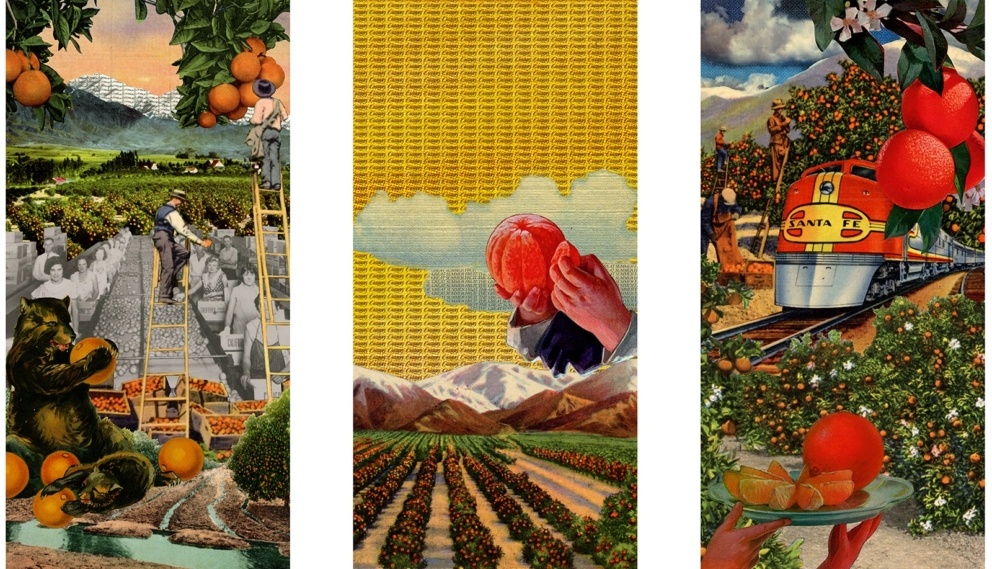
The West Gallery is continuing to present An Artful Reframing: Expanding Our ULV Story through an Inclusive Voice. An Artful Reframing is a collaborative effort among ULV researchers and acclaimed artists to present a more inclusive understanding of ULV’s history, heritage and identity, critically engaging our Church of the Brethren history, reckoning honestly with our predominantly white history, and highlighting stories that give shape to our diverse, multicultural and Hispanic Serving identity. An Artful Reframing brings together academic essays and artistic expressions that reframe our history and heritage, expand our understanding of who we are, and provide new possibilities for our institutional identity, vision and future becoming.
Throughout the 2022-23 academic year, the West Gallery is featuring multiple researchers and artists who have contributed to An Artful Reframing. Our third exhibition features Dr. Sylvia Mac, Associate Professor of Education and Director of the Center for Learning Innovation, Dr. Niki Elliott, clinical professor of education and Co-Director of the Center for Neurodiversity, Learning and Wellness, Dr. Benjamin Jenkins, Assistant Professor of History and University Archivist, and artist Ruby Osorio.
Dr. Mac and Dr. Elliott’s research project is entitled “Am I Good Enough to Be Here? A Photovoice Project Examining Students’ Experiences of Ableism at ULV.” In recent years, La Verne has seen a significant increase in accommodation requests for students with disabilities and neurodiversity. These students’ stories often remain invisible in institutional histories, as well as in efforts to promote diversity and inclusivity, and often face obstacles that impede their ability to survive and thrive in higher education settings. In support of neurodiversity as the next frontier of social justice advocacy, Dr. Mac and Dr. Elliott employ a photovoice research methodology to collect interviews and photos taken by ULV students with disabilities, resulting in a digital scrapbook which documented the lived realities of these students in the University’s history. “We hope to humanize the stories of those who thrive in spite of many systems that were not initially designed to support them,” the researchers explain, “and to mobilize the entire university community to act on behalf of greater equity and access for all students.”
Dr. Jenkin’s research project is entitled “War and Peace at La Verne: Soldiers, Conscientious Objectors, Public Servants, and Brethren Values at the University.” Dr. Jenkins foregrounds the complicated relationships between La Verne’s historical connections with its Church of the Brethren roots of nonviolence and pacifism, students and faculty who have been conscientious objectors and those who have served in the American military, and La Verne’s history of regional campuses on military bases and the recent opening of the Center for Veteran Student Success. Dr. Jenkins reexamines the history of La Verne’s relationship to war by considering the experiences of those who performed alternative service or objected on conscientious grounds in tandem with those of veterans. Using the archives of Wilson Library and oral histories of alumni and faculty members from La Verne, the essay reckons with the divergent histories of combatants, conscientious objectors, and those who performed humanitarian service, synthesizing these stories into a new narrative. “Rather than privileging either veterans or conscientious objectors” says Dr. Jenkins, this narrative “consider[s] how both groups have shaped the university’s institutional heritage,” redefining ULV’s relationship to the value of nonviolence in response to military conflicts throughout its history.
A native of the Mahoning Valley in Northeast Ohio, based in Los Angeles, Jennifer Vanderpool draws on her family’s working-class story as a lens to query the social construction of place based on the influences of history, race, class, gender, and labor. She employs this process to investigate workers’ lives beyond geopolitical boundaries. Her social practice exhibitions highlight the global predicaments of those engaged in manual and industrial labor. Vanderpool researched the visual and material cultural representation of the citrus industry in the University of La Verne archives, employing selected imagery from these historical advertisements, labels, and postcards to develop her new composition for An Artful Reframing: Expanding Our ULV Story.
Jennifer Vanderpool has exhibited extensively including at Heritage Space, Hà Nội, Việt Nam; Nina Menocal Gallery and Zona Maco México Arte Contemporaneo, Mexico City; Galería Sextante, Centro Colombo Americano, and Mercadito & Mentidero, Bogotá; No Lugar – Arte Contemporáneo and La Huerta y La Maquina, Quito, Ecuador; the Santa Barbara Museum of Art, Santa Barbara, CA.